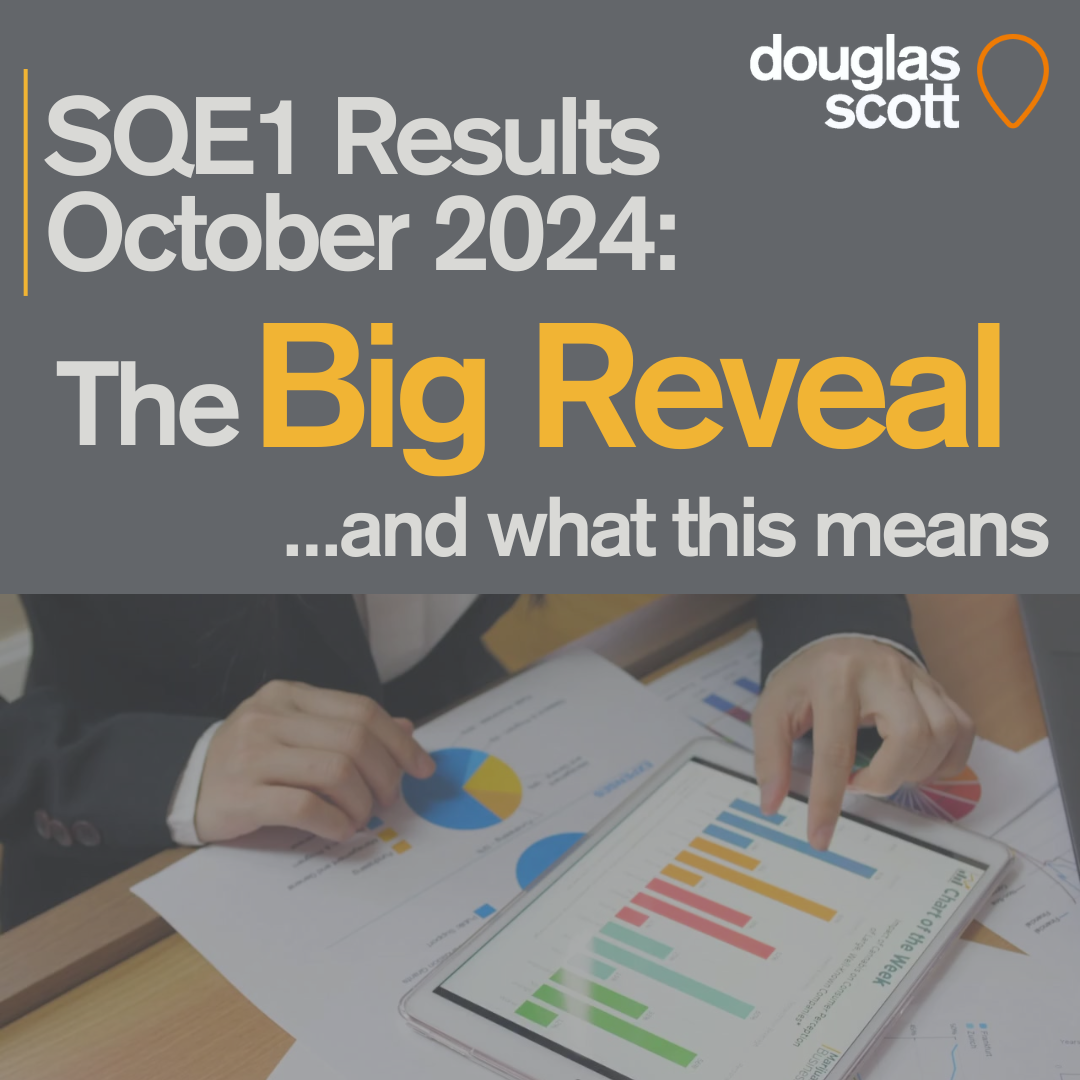The SQE1 results – October 2024 roundup
Posted in Latest News on 9 Oct 2024

We here at Douglas Scott have been following the Solicitors Qualifying Exam (SQE) results for some time now.
As we’ve seen, it hasn’t been entirely plain sailing, with a number of challenges involving the administration and grading of the exams causing more than just headaches for all concerned. However, it had appeared that in recent months, things were starting to turn a corner. The latest set of results for the first of the two exam sittings might put paid to some of those celebrations.
The results for the latest sitting of the SQE1 (the exam that tests what is described as ‘functional legal knowledge’), which took place in July, were released last week, and show that the pass rate has dropped to the lowest level since the exam was introduced in September 2021. Just 44% passed the two components that make up the exam – a marked decrease on the previous January sitting, where the pass rate was 56%. This was the highest rate so far and followed steady increases for the last two sittings. So, to see such a sharp drop with this sitting must be concerning, especially considering that, unlike January’s sittings, there were no major incidents or technical problems to report. Like previous results, those sitting the exam for the first time did slightly better than those repeating the exam, with 48% of first-time students passing.
These results must come as a shock to those who thought the exam had turned a corner. Let's not forget that it was this time last year that the City of London Law Society had to issue a statement to law firms to show patience with those taking the exams, and it seems like these results might lead to similar calls being issued. After all, earlier this year, there was a lot of publicity about trainee contracts being rescinded for those who didn’t pass the first time around, and similar stories may start to proliferate again based on these results. Whether there’s a knock-on effect on the SQE2 remains to be seen, although the pass rate for this exam has been much higher than the SQE1 throughout, sitting most recently at just under 80%. It will be interesting to see whether or not the same effect as seen back in the early part of the year repeats itself now.
These latest SQE results must disappoint those sitting the exams, the firms that will be employing this newest batch of talent, and the exam board Kaplan, who were looking to move on from the problems and perceived low grades from this year and last. This will probably shine a renewed light on the SQE, especially with the cost due to go up in the new year. We’ll continue to see if there is any fallout from these results in the future.
Latest insight
-
How popular really is hybrid working?
07 Apr 2025 -
What is the top priority for law firm leaders?
20 Jan 2025 -
How to make your 2025 Legal dreams come true!
13 Jan 2025 -
What poor mental health is costing firms...
13 Nov 2024 -
Beyond the surface: How law firms are quietly advancing social mobility
05 Nov 2024